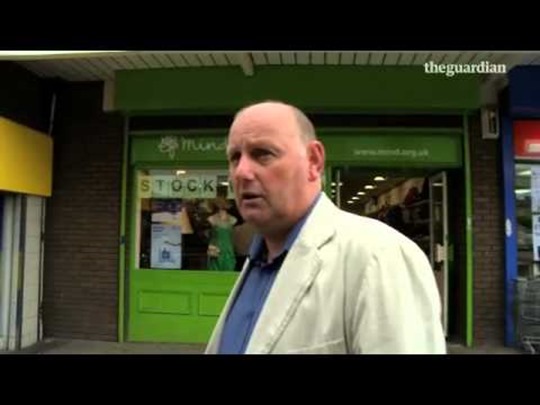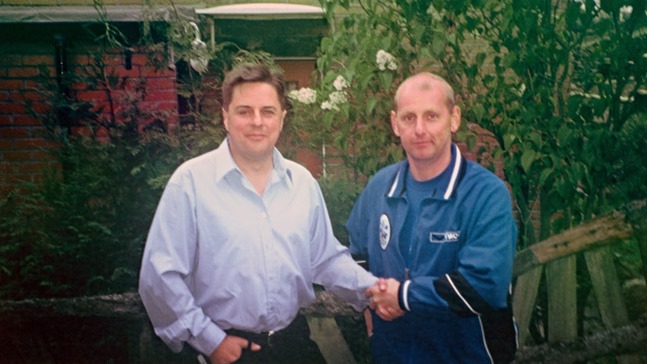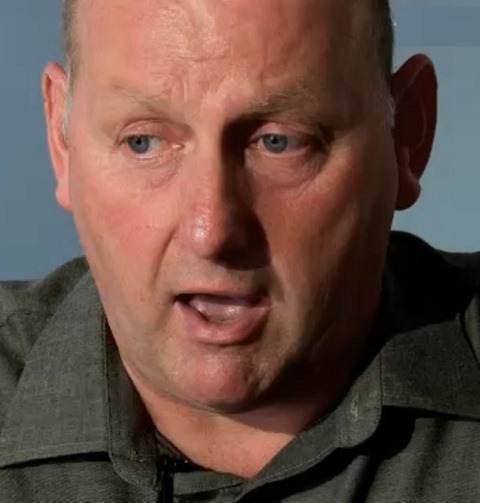Max Musson
Western Spring
June 24, 2014

An interesting article appears on the Guardian website today featuring a video in which Gary Shopland, an ex-BNP member, tells the story of his alleged service as an undercover police informant.
The article is interesting for a number of reasons; firstly because Shopland’s membership of the BNP apparently ended in 2003 when he says he chose to stop working as an informant; because Shopland reveals nothing of any significance about the BNP; and because if anything his story reflects badly upon both him and his police handlers, rather than the BNP.
The video begins with footage of the Oldham riots of 2001, as if to infer that Shopland’s recruitment as a police informer was in some way related to these events and a desire on the part of the police to prevent further violence. In fact the rioting in Oldham was perpetrated by Asian gangs and was nothing to do with the BNP, and as the video later inadvertently showed, Shopland apparently joined the BNP in 1997, four years before the Oldham riots took place.
If Shopland’s account is to be believed, and there is good reason to suspect that he should not be, he was approached by police while he was training for a marathon in Snowdonia. Shopland had apparently made a reputation for himself as an “ultra-distance runner” and according to the video commentary, “The police appeared to see Shopland as an ideal BNP recruit … they said he looked the part”, and this suggestion immediately appears implausible – that special branch police officers would have been lurking around a marathon training event looking for potential undercover informants, as if talent as an ultra-distance runner somehow demonstrates an aptitude for undercover police work – or that ultra-distance running would somehow identify someone in the eyes of the police as a potentially “ideal BNP recruit”.
When initially approached by the police, Shopland recounts, “They said would you be interested in working for us? And I said, well yes.
“I’d be sent in to monitor a racist organisation called the British National Party. I wasn’t aware of the British National Party – I’d never heard of them.
“It all takes a massive adjustment from being a person that’s just not a racist, that’s never been a racist, to put in the position where you’re surrounded by racists.”

Shopland apparently wrote “regular reports” for his police handlers and with the massive adjustment required of Shopland, one would imagine that he would be highly regarded and richly rewarded by the state for his efforts, but no!
In return for his assistance, the police simply gave him furtive payments of cash.
“They gave me payment for it, in the backs of cars, in my house, in pubs”, Shopland tells us.
“I gave them the envelope with the intelligence in, they gave me the envelope with the cash in. I used to sign.
“On one occasion I had £100 and after that it was like a standard joke as to see who could, like, give it me then snatch it back. You know, give it me and snatch it back almost became a bit of a sick joke”.
In return for his assistance and the great inconvenience he suffered in fulfilling his duties, Shopland would have us believe that he was content to receive small cash payments delivered in furtive circumstances and in a manner that was clearly humiliating to him – giving the money and then snatching it back as some kind of “sick joke” at his expense.
Clearly Shopland did not have his handler’s respect. According to him, he was asked to work for them, but was not offered a proper contract of employment. He was paid in cash and one would assume without income tax or national insurance contributions having been deducted, under circumstances that were in all probability therefore, improper and of dubious legality.
All of this would tend to suggest that in the eyes of the police, far from being at the outset, a fine and respectable, upstanding member of the community, Shopland was seen as a ‘low-life’, a ‘snout’, that they were bribing with illicit inducements in order to elicit intelligence. It would be strange indeed for the police to approach a member of the public with an irreproachable reputation and expect them to respond positively to a sordid proposition involving such apparent impropriety, in return for what was little more than petty cash.
If Shopland had been a man of good character prior to being approached by the police, he must have been an idiot to undergo the great inconvenience that he describes, joining a political organisation that he had never heard of and working undercover despite being routinely humiliated by the police in return for such small, apparently illicit, cash payments, and one is therefore left wondering if the police had some other way of exercising leverage over Shopland?
Let us contrast the routine humiliation that Shopland describes at the hands of the police with his treatment by Nick Griffin:
The video tells us that Shopland became Nick Griffin’s body guard during the 2001 general election and Shopland recalls, “I could get close to Griffin and gained his confidence – ‘cause at the end of the day that’s what my job was – to get as close to him as possible, and the closer to him I got, the better graded and better quality the intelligence I could get.

“He treated members of the BNP okay. He treated me okay, because I was keen and I showed I was keen.
“I did everything I was asked within the BNP to such an extent I invited him [Griffin] up to one of my charity runs, and he came and he supported me”.
It would appear therefore that Shopland was treated with far greater respect and was shown more gratitude by Nick Griffin than the police. Furthermore, despite all of Shopland’s undercover work, it would appear that he did not find any evidence of any illegal activity by Nick Griffin, or if he did the police never acted upon it, and so his six years of undercover work and the apparent discomfort he felt mixing with ‘racists’ and the routine humiliation he endured at the hands of the police would all appear to have been for nothing.
When Shotland finally ended his liaison with the police and with the BNP in 2003, he recalls, “I felt betrayed and dumped by the state, really. There was no support there for me mentally, so there was no one for me to turn to.
“I just want to be able to clear my name, move on in my life and tell people that what I went through was to fight racism and try to make my country a better place to live in.”
If Shopland is to be believed, and let us be charitable and accept his word, then he was an incredibly naïve person and an idiot to have become involved with the police and allow himself to be manipulated by them under the circumstances that he describes.
While he thought he was doing a “job” and providing a service to the state, it is evident that the state did not view their relationship with him in that way. He was apparently given no contract of employment and when his time was up, he appears to have been unceremoniously dumped with no concern shown for his welfare.
